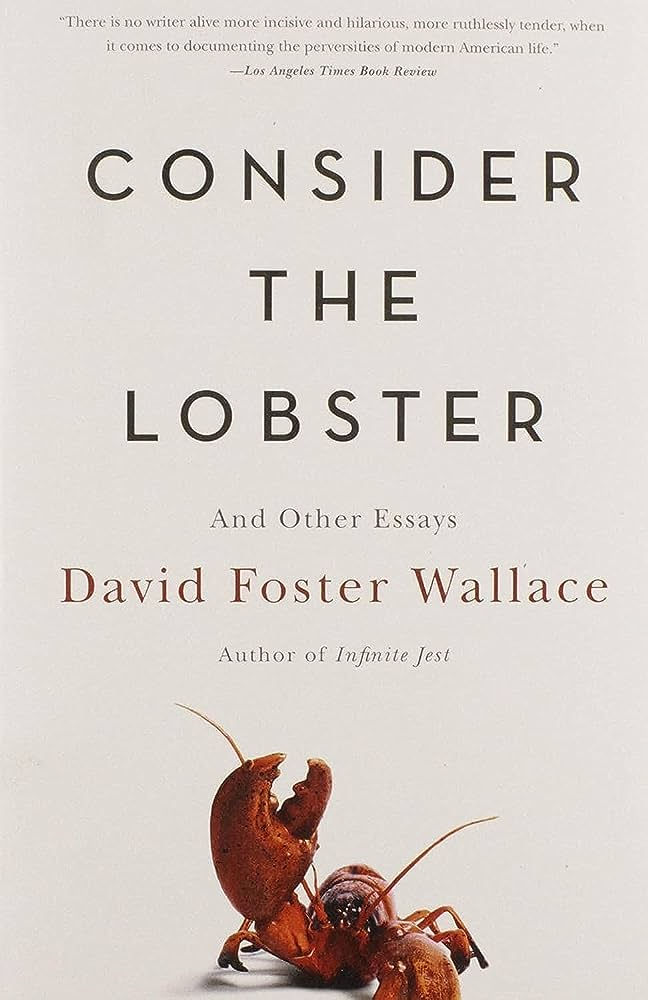"THE LITERARY ESSAY - ENGAGING WITH THOUGHT-PROVOKING NON-FICTION": DE MODE OF LITERATURE
- DE MODE

- Feb 17, 2024
- 3 min read
ORIGINALLY PUBLISHED IN DE MODE | LITERATURE
Article Published on: 17TH FEB 2024 | www.demodemagazine.com
The literary essay, a form of non-fiction writing, serves as a vibrant and versatile medium through which authors explore, analyze, and reflect upon a myriad of subjects. These essays go beyond mere exposition, delving into the realms of personal insight, cultural critique, and philosophical contemplation. In this exploration, we delve into three thought-provoking non-fiction essays, each exemplifying the literary essay's capacity to engage readers intellectually and emotionally.
"Self-Reliance" by Ralph Waldo Emerson
Published in 1841, "Self-Reliance" by Ralph Waldo Emerson remains a seminal work in the genre of literary essays. Emerson, a transcendentalist philosopher and essayist, advocates for individualism, self-trust, and nonconformity. In this essay, he urges readers to embrace their own instincts and intuition, challenging societal norms and the pressures of conformity.
Emerson's prose is both eloquent and incisive as he implores individuals to trust their own inner voices and resist the conformity that society imposes. He argues that true greatness lies in embracing one's unique perspective and resisting the urge to conform to societal expectations. "Self-Reliance" encourages readers to cultivate self-trust, pursue their own paths, and embrace the inherent worth of individuality.
Emerson's enduring message resonates across time, inviting readers to question societal norms and embrace the inherent value of their own thoughts and instincts. "Self-Reliance" remains a timeless exploration of the tension between societal expectations and individual authenticity, challenging readers to reflect on their own beliefs and choices.

"The Death of the Moth" by Virginia Woolf
Virginia Woolf, a pioneer of modernist literature, crafted essays that blended literary analysis with deeply personal reflections. In "The Death of the Moth," Woolf explores the fragility of life and the inevitability of death through a seemingly ordinary encounter with a moth. Published in 1942, the essay reflects the anxieties and uncertainties of the wartime period.
Woolf's prose is poignant and introspective as she observes the struggles of a moth trapped in her windowpane. Through this small, ordinary incident, she contemplates the broader themes of mortality, resilience, and the fleeting nature of existence. Woolf's ability to extract profound meaning from the mundane showcases the literary essay's power to elevate everyday experiences into profound reflections on the human condition.
"The Death of the Moth" exemplifies Woolf's mastery in combining keen observations with introspective analysis. The essay prompts readers to confront the inevitability of mortality, urging them to find meaning and beauty in the transient moments of life. Woolf's exploration of the moth's struggle serves as a metaphor for the human experience, inviting readers to reflect on the interconnectedness of life and death.

"Consider the Lobster" by David Foster Wallace
David Foster Wallace, known for his distinctive voice and intellectual rigor, delves into the ethical complexities of the lobster industry in "Consider the Lobster." Originally published in 2004, the essay combines cultural critique, culinary exploration, and philosophical inquiry. Wallace's distinctive style, marked by footnotes and digressions, engages readers in a multifaceted examination of the moral implications of boiling lobsters alive.
"Consider the Lobster" showcases Wallace's ability to blend humor, erudition, and ethical reflection. He prompts readers to confront their own complicity in the treatment of animals, challenging the assumptions underlying common practices. Wallace's inquiry extends beyond the culinary world, touching on broader questions of empathy, ethics, and the moral responsibility of individuals in a complex society.
Through the lens of the lobster festival, Wallace provokes readers to consider the ethical implications of their choices, urging them to confront uncomfortable truths about the treatment of animals. "Consider the Lobster" stands as an exemplar of the literary essay's capacity to tackle complex ethical questions with nuance, inviting readers into a reflective dialogue on the moral dimensions of everyday choices.

Conclusion
In conclusion, the literary essay serves as a dynamic and transformative genre, allowing writers to engage with readers on intellectual, emotional, and philosophical levels. From Emerson's call for individualism in "Self-Reliance" to Woolf's introspective exploration of mortality in "The Death of the Moth" and Wallace's ethical inquiry in "Consider the Lobster," these essays exemplify the genre's ability to provoke thought, challenge assumptions, and illuminate the human experience.
Through the literary essay, authors transcend the boundaries of traditional non-fiction, infusing their work with literary craftsmanship, personal insight, and cultural critique. Readers are invited not only to absorb information but to actively engage with ideas, confront challenging questions, and embark on intellectual journeys that resonate long after the final page.
As readers delve into the worlds created by Emerson, Woolf, and Wallace, they encounter the transformative power of the literary essay—a genre that continues to captivate, challenge, and inspire by bringing together the realms of literature, philosophy, and personal reflection. The literary essay, in its exploration of the profound and the ordinary, offers readers a gateway to deeper understanding and connection with the complexities of the world and the human psyche.



Comments